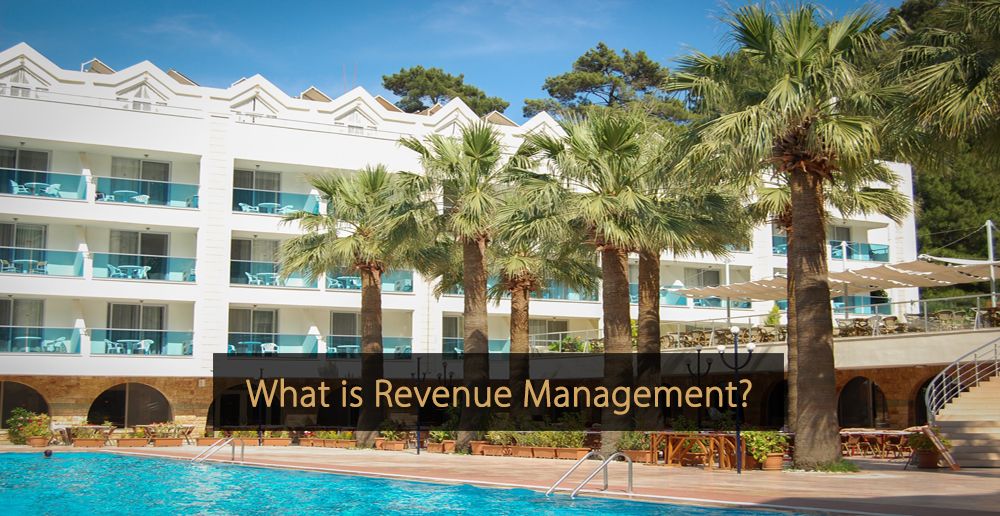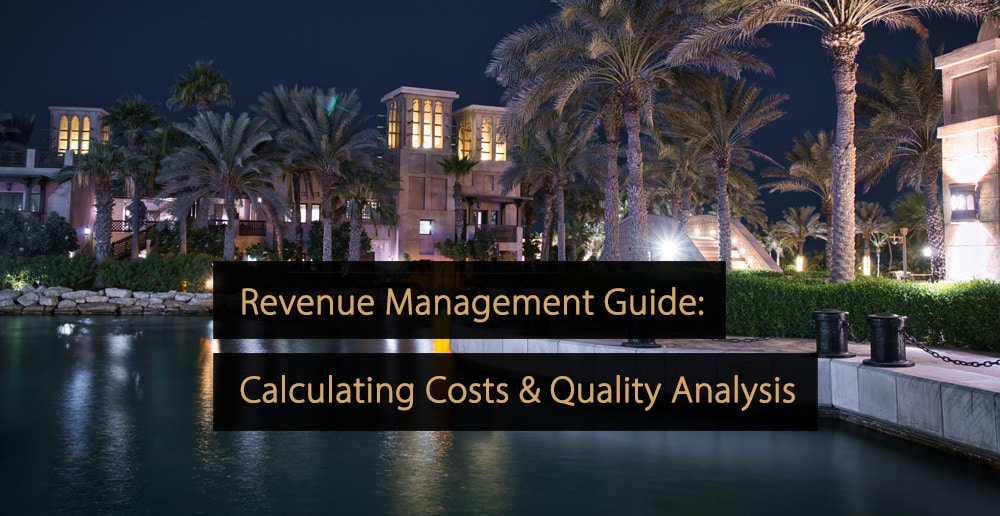Yield management is a pricing strategy commonly utilized by businesses in hospitality, air travel, and other tourism-related fields to generate maximum revenue from perishable inventory (e.g., hotel rooms or airline seats). Here, we answer the question ‘What is yield management?’ and explain why it is useful for hospitality hotel owners and others.
Defining Yield Management
In simple terms, yield management is a strategy based on selling to the right customer at the right time for the right price. Within the hotel industry, this typically means selling the right room to the right guest(s) at the best possible time for the highest amount to maximize revenue.
Yield management shares many similarities with the revenue management concept, but it has existed for a long time. Nevertheless, it is important to note that yield management has a narrow focus and is concerned only with the selling price and the sales volume to achieve the best possible revenue yield.
The basic concept behind yield management is that certain fixed, time-limited resources, such as hotel rooms, can be sold for different prices based on the time of year, the level of demand, the number of rooms already sold, and a wide range of other external factors.
Because of the number of variables involved in the process, the same product (e.g., a hotel room) can be sold to two customers for different prices. Yield management strategies take a data-driven approach to ensuring pricing is adjusted to maximize business results.
Video: What Is Yield Management?
Why Is Yield Management Important?
Adopting a yield management strategy allows hotel owners to maximize the money they make from a finite number of rooms that need to be sold by specific times. Managers can use past performance data and general industry trends to anticipate demand and respond accordingly.
Yield management also allows hospitality businesses to optimize the pricing and selling strategy of their single most important resource – their available rooms. This allows hotel owners, for example, to get the basics of their business right by maximizing revenue from rooms alone. According to the Hotel Yield Management Practices Across Multiple Electronic Distribution Channels Research by ResearchGate, yield management proves to be profitable as businesses report an immediate 5-10% increase in revenue.
Strategies of Hotel Yield Management
This educational table outlines key strategies for effective yield management in the hotel industry, detailing how each strategy can be implemented and the expected impact on revenue. Understanding these approaches allows hotels to optimize pricing, manage demand, and ultimately enhance profitability, ensuring that they cater efficiently to market dynamics and customer behavior.
| Strategy | Implementation Approach | Expected Outcome for Revenue |
|---|---|---|
| Segmenting Market | Classify customers based on their value and booking behavior. | Maximizes revenue by targeting and tailoring offers to different segments. |
| Dynamic Pricing | Adjust room rates in real-time based on demand, season, and occupancy. | Increases revenue by selling rooms at the best possible price at any given time. |
| Overbooking Management | Calculate and apply a certain level of overbooking based on historical data and cancellation rates. | Reduces the impact of no-shows and cancellations, optimizing room revenue. |
| Length of Stay Control | Set minimum or maximum stay requirements during high-demand periods. | Ensures optimal room availability and pricing during peak times, enhancing revenue. |
| Package and Bundle Offers | Create attractive packages combining rooms with other services (dining, spa, tours). | Encourages bookings and increases spend on ancillary services, boosting overall revenue. |
| Channel Management | Optimize distribution across various booking channels based on cost and reach. | Balances exposure and lowers commission costs by prioritizing the most profitable channels. |
| Inventory Control | Adjust available inventory on different platforms to match demand forecasts. | Prevents underselling or overselling, ensuring maximum revenue from available rooms. |
| Customer Loyalty Programs | Develop and promote loyalty programs to encourage repeat business. | Increases direct bookings and customer retention, leading to higher long-term revenue. |
Yield Management vs. Revenue Management
Within hotel management, yield and revenue management are two of the most useful tools available to managers. They allow them to maximize the money they make from guests. Although the two concepts are closely linked and share many similarities, they also have some important differences. For more detailed information about revenue management, please also read the article “What is Revenue Management?”.
What Is Yield Management FAQs
Did You Like This Article About What Is Yield Management?
You might also be interested in the following articles:
- Hotel STAR Report: Clear Introduction for Hoteliers
- The Importance of Benchmarking in Hotel Management
- Total Revenue Management: How Hotels Can Maximize Their Revenue
- Open Pricing: Why Is It the Next Hotel Revenue Management Strategy
- Outsourcing Revenue Management: Ways it Benefits Hotels
More Tips to Grow Your Business
Revfine.com is the leading knowledge platform for the hospitality and travel industry. Professionals use our insights, strategies, and actionable tips to get inspired, optimize revenue, innovate processes, and improve customer experience.Explore expert advice on management, marketing, revenue management, operations, software, and technology in our dedicated Hotel, Hospitality, and Travel & Tourism categories.
This article is written by:
Hi, I am Martijn Barten, founder of Revfine.com. With 20 years of experience in the hospitality industry, I specialize in optimizing revenue by combining revenue management with marketing strategies. I have successfully developed, implemented, and managed revenue management and marketing strategies for individual properties and multi-property portfolios.










Leave A Comment